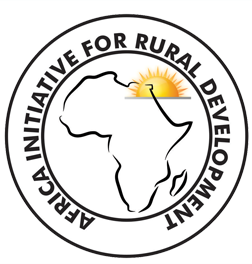Lighting Homes with Africa Initiative for Rural Development
In Ndoroto village, Naivasha east lives Ann Wangui, a mother of seven children. Two of her children are enrolled in secondary school whilst three are in primary school, all within the same location.
While education is vital, the process comes with challenges as many homes and schools lack access to electricity. Ann herself lives in a mud thatched house.
Her husband died in 2010 and culturally, there is high expectation for her to provide for the entire household. “I want the best for my children because I didn’t have the opportunity to go to school” she says.
Enrolled In the Program
Ann is a farmer and is currently enrolled in the government cash transfer program as one of the needy households. She is a member of Atiririri CBO, AiRD’s partner that introduces affordable solar lamps to households as a measure to enable school pupils to do their homework at home and attend to their chores. In the past, Ann used parafin lamps which was more costly. Sometimes, she and her children had to survive dark nights as long as she could put food on the table.
However now that she has a solar lamp since January, Ann has seen significant improvement in her children’s school performance because she’s able to help them revise their homeworks. One of Ann’s children, Nephat has improved his scores from C+ to B+ and he is now able to help his siblings with revision.
With affordable solar lamps, the village can light their homes and use their energy for things such as charging their mobile phones and powering small radios.
“No labour is needed to fix the solar panel and bulbs, it’s affordability is a big help and we can conveniently pay over an agreed period of time through an agreement between our CBO and AiRD” says a grateful Ann who’s also encouraging her friends in the village to consider using solar lamps. With solar power’s potential to bring energy, AiRD will continue lighting homes all over the country.

